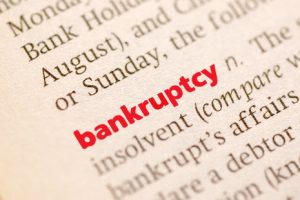ITT Tech Bankruptcy Spills Over Into The Civil Arena

The bankruptcy trustee wants the judge to halt two civil actions against the bankrupt for-profit college, but government officials want the actions to proceed.
Deborah Caruso, who is overseeing the bankruptcy on behalf of the judge, filed a motion to stay all pending Freedom of Information Act requests and consumer fraud lawsuits, including the ones brought by the Massachusetts and New Mexico lawyers general. Spokespersons in the two offices insisted that the cases should move forward, as they will provide information to debt-ridden former students in their quest to get out from under student loans. Two federal government agencies — the Securities and Exchange Commission and the Consumer Financial Protection Bureau — want their respective actions to move forward as well.
Ms. Caruso maintained that since insurance is paying for legal fees in these matters that if the actions move forward, the estate will lose money.
Ancillary Proceedings in Bankruptcy
Whereas corporate bankruptcies often involve complex legal issues, most consumer debtors will never see the inside of a courtroom. Nevertheless, there are a few matters that sometimes come up.
Perhaps the most frequent, especially in Chapter 7s, is a motion for turnover. When consumers file bankruptcy, all their non-exempt property technically reverts to the bankruptcy estate, which the trustee manages for the creditors’ benefit. Non-exempt property usually includes things like:
- Large amounts of cash in a DDA (demand deposit account) or similar account,
- An inherited IRA or other retirement plan,
- Additional motor vehicles, and
- Revenue-producing property, such as rent houses.
Procedurally, the debtor has an opportunity to either amend the schedules or argue the merits of the motion.
In Chapter 13s, creditors sometimes file motions for relief from stay. These actions are especially common if the moneylender has already began foreclosure proceedings or other similar adverse actions. Essentially, the bank argues that since the debtor is so far behind on payments the collateral is in danger, and the bank seeks to enforce its security interest.
Resolving Ancillary Matters
Over 95 percent of civil cases are settled out of court, and this rule is certainly true in adversarial bankruptcy proceedings.
Motions for turnover are often resolved by amending the schedules. The Bankruptcy Code requires debtors to list the as-is cash value of their assets, and this figure is usually well below the fair market value. After the debtor establishes the true value of a vacant rent house that needs work or a semi-running car in the garage, the trustee often abandons the motion. If the asset is cash in a DDA, the cash is probably gone before the trustee filed the motion, so the issue may be legally moot.
In Chapter 13 motions for relief from stay, if the debtors cannot afford to keep the property or no longer wish to remain there, the debtor’s lawyer and bank often work out a foreclosure alternative, such as a:
- Short Sale: The bank allows the owners to sell the property for less than fair market value, and the owners are not responsible for the difference.
- Deed in Lieu of Foreclosure: In a voluntary foreclosure, the owners agree to return the deed to the bank; a DIL looks better on credit history reports than a foreclosure.
- Cash for Keys: Program details vary, but typically, the owners agree to clean out the property and get it into move-in condition, and the lender pays the owners several thousand dollars.
If the property is included in the debt repayment plan and the trustee has approved the plan, judges typically deny these motions.
Reach Out to Experienced Lawyers
Adversarial bankruptcy proceedings are typically resolved in the debtor’s favor. For a free consultation with an experienced bankruptcy lawyer in Chicago, contact the Bentz Holguin Law Firm, LLC. Convenient payment plans are available.
Resource:
politico.com/tipsheets/morning-education/2016/10/fight-over-itt-tech-continues-in-bankruptcy-217040


